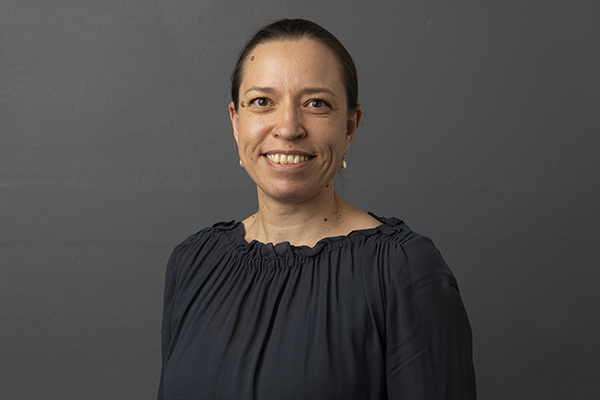Aida Solhøj Hansen
Research leader

Project title
Extracellular vesicles subvert the immune system and drive resistance to cancer therapy
What is your project about?
My project aims to investigate how cancer cells communicate with the surrounding immune cells in the tumor, and the significance of this for development of treatment resistance. There are several ways by which cells communicate and, in this project, we will focus specifically on communication mediated via so-called extracellular vesicles. These are small membrane particles in nanometer size, in which cells can “package” multiple molecules to regulate the function of recipient cells. In this project, we will focus on advanced breast cancer, where development of resistance to the current treatment options is a major challenge. The overall hypothesis for the project is, that cancer cells that starts to become resistant will package specific molecules in extracellular vesicles to suppress the immune system and disseminate treatment resistance across the entire tumor.
How did you become interested in your particular field of research?
I have always been very fascinated by how cells communicate and regulate each other, to maintain homeostasis but in particular also in the development of diseases including cancer and inflammatory conditions. My interest into the role of extracellular vesicles as an important signaling mechanism was sparked during a postdoc project, where we investigated ways to activate the immune system to fight cancer. Extracellular vesicles have several unique features including their content of multiple signaling molecules and a membrane making them stable in solution. Accordingly, they have capacity to regulate other cells by different mechanism simultaneously, both locally for instance in a tumor microenvironment but also globally in the body.
What are the scientific challenges and perspectives in your project?
The research field of extracellular vesicles is relatively new and there is still a lot about them that we don’t know. All cells produce a wide range of different extracellular vesicles, which may have distinct functions although they originate from the same cell. A main challenge in the field is the limited knowledge about, and good methods to determine, this heterogeneity. In this project, we will determine the signaling molecules carried by extracellular vesicles from resistant breast cancer cells, and investigate the cellular mechanisms regulating the production of specifically the resistance-promoting extracellular vesicles. We hope to identify novel targets for a potential new therapeutic strategy to arrest development of acquired resistance in advanced breast cancer, without affecting the extracellular vesicles important for maintaining homeostasis.
What is your estimate of the impact, which your project may have to society in the long term?
Acquired treatment resistance and suppression of an anti-tumor immune response are major challenges in many cancers. Elucidating the significance of extracellular vesicles as an important mechanism for acquired resistance and immune suppression in advanced breast cancer may therefore be relevant for also other cancer types. Moreover, will this project contribute to a more detailed understanding of cellular communication in general, and the mechanisms for packaging of specific content in specific extracellular vesicles. This may be pivotal to increase our general understanding of important cellular processes involved in many diseases.
Which impact do you expect the Sapere Aude programme will have on your career as a researcher?
I am very honored to receive this Sapere Aude grant and the recognition of my research and my ideas. Being part of this Sapere Aude program will allow me to establish a research group at University of Southern Denmark, and to pursue more long-term and ambitious research objectives. I am looking very much forward to continue my own development as a researcher and now research leader, and to be able to also contribute to develop new research talents.
Background and personal life
I live in Western Zealand with my partner, our 2-year-old daughter and my partners two boys aged 9 and 12. I love our family and every-day life and being close to nature. In addition to spending valuable time with my family, I enjoy being creative and do gardening, which for me is a great way to unwind from a busy day. Often, this is also where new ideas come up. When time and weather allow, I really like to get on the roads on my race bike.
View all research leaders here
Research institution
University of Southern Denmark
Research field
Cancer immunology
City of your current residence
Slagelse
High school
Amtsgymnasiet i Odder
